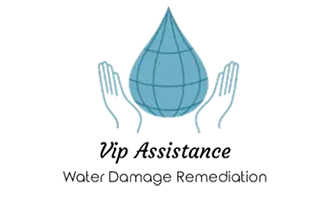Heavy rains and flooding after a storm can affect your property differently. But while roofs, windows, and doors are usually the first areas home or business owners check for storm damage, your onsite wastewater treatment system is another space worth checking.
Flooding and power outages after a hurricane can keep septic systems from performing the crucial task of removing harmful microorganisms from wastewater and protecting public health. While you can always call professionals for wastewater cleanup and storm damage repair, here are some useful tips and insights to help prevent extensive and even dangerous septic system issues.
The Common Types of Wastewater Treatment Systems
As a property owner, knowing the best steps to take after a storm will depend on the kind of treatment technology you have.
Septic systems can be divided into two categories: conventional or gravity-driven systems and aerobic treatment units (ATUs). Since they operate differently, the steps you’ll take toward wastewater cleanup and damage control will also be fundamentally different.
Dealing With Power Outages
Fortunately, electrical outages after a severe storm do not affect gravity-driven collection systems. This is because these use gravity to feed wastewater into a septic tank and down to the soil treatment area (STA).
However, ATUs comprise a septic tank, an aeration tank, and a clarifier —- a system that requires electricity to run. Without power, household water will collect in the tank and not be treated. Moreover, continued water use will only fill the tank, eventually causing slow drains, foul odors, and even wastewater backups.
Dealing With Flooding
Whether you have a conventional wastewater treatment system or an ATU, having floodwater on the area above the septic tank, STA, and/or aeration tank is never a good idea.
For gravity-driven systems, flooding can cause water to enter the septic tank or rainwater to percolate through the backfill. If these situations occur, the septic tank can eventually fill up and cause untreated water to backflow into the house.
On the other hand, floodwater can cause an ATU’s components to malfunction since they run on electricity. Continued use of the system in this situation can then hinder the final treatment of the effluent, ultimately causing environmental pollution.
What To Do in a Power Outage
If you have an aerobic treatment unit on your property, these tips are worth noting during a power outage:
- You can never tell how long an outage will last, so it’s best to minimize water use as much as possible. This will help prevent the ATU tank from filling and keeps untreated water from backing up into the house.
- Check if the system is working once the power comes back. The aerator produces a humming sound once it’s back up and running.
- After a prolonged electrical outage, continue using as little water as possible for the next few days. It takes time for the anaerobic bacteria used to treat wastewater to return to an effective level.
What To Do When a Septic System Is Flooded
No matter the type of septic system you have, a widespread flood can impact your septic system in various ways. For example, it can wash soil away from the tank, saturate the ground in the dispersal area, and even introduce untreated wastewater into your yard.
If the area above your septic system is flooded, here are some steps you can take to minimize damage to your home’s plumbing:
- Prevent sewage from flowing back into your house by plugging or sealing all drains in the basement.
- Turn your ATU off to prevent a short-circuit in your aerator or the system’s electrical panel.
- Use less water to relieve the pressure on your wastewater treatment system during a flood.
- If your sinks are draining slower than usual, stop or drastically reduce water use immediately. Slow drains can signify that wastewater is starting to back up.
What To Do After a Flood
While floodwater receding is a positive sign, it does not necessarily mean that the issues have been resolved. Keep your family safe and your property secure by keeping these tips in mind:
- The septic system may still be filled with floodwater even when the surface is clear, so it still helps minimize water usage and prevent sewage backup.
- Never let children play in floodwater as it may contain wastewater.
- Do not drink well water until you can be sure it’s safe. Instead, use bottled or treated water for the time being.
- If your entire home has been submerged in floodwater, vacate the area and call your local storm damage repair professionals for help. Your floors, walls, drywall, carpets, rugs, and other surfaces should be cleaned and disinfected to prevent microbial growth and other bacteria from causing potential health risks.
